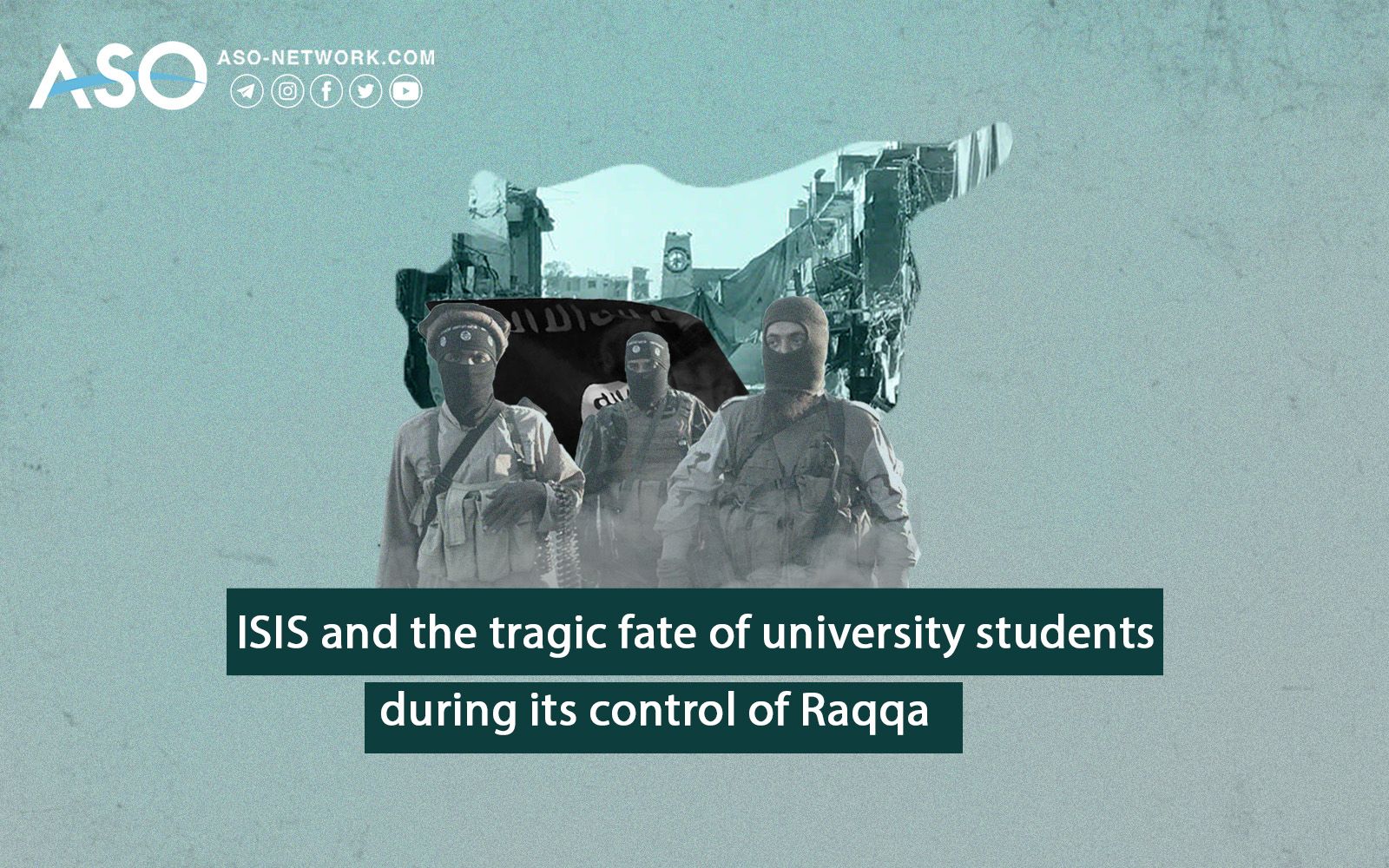articles
ISIS and the Tragic Fate of University Students During Its Control of Raqqa

University students in areas under ISIS control suffered from the group’s decisions to ban university education, claiming that it taught “heresy and atheism.” This forced students to secretly flee their regions through dangerous smuggling routes to study in government-controlled areas, risking landmines planted by ISIS and the possibility of being captured by the group’s militants.

Initially, ISIS prohibited students from studying certain disciplines such as philosophy, law, sociology, and Islamic jurisprudence, arguing that they were linked to “heresy.” Those pursuing these fields were required to “repent” through the group’s “security apparatus” or face execution on charges of apostasy. Later, ISIS imposed the death penalty on any student found to be enrolled in a Syrian government university, which it referred to as “Nusayri” institutions.

Khaled Ahmad (a pseudonym), a former law student at the University of Aleppo during ISIS’s control of Raqqa and Tabqa, recounted his ordeal to Asso News Network. In 2014, while traveling to Aleppo for his exams, he was stopped by an ISIS checkpoint in Maskana. The militants demanded to see his military service booklet to confirm that he was not serving in the Syrian army. Upon examining his papers, they forced him out of the vehicle and arrested him on charges of studying “heresy, apostasy, and atheism.”
Khaled described his experience as terrifying, facing an unknown fate at the hands of masked militants in strange uniforms. He was blindfolded and taken to prison, where he endured psychological torture.
“They showed me videos of their members beheading people and mutilating corpses. Then one of the guards came in and told me my punishment was execution. He said I should have my last meal before they slit my throat with a knife,” Khaled recalled.
The horrifying thought of his imminent death and the image of his family seeing his beheaded corpse haunted him for hours. Then, he was taken to a “prince” of Saudi origin, who asked, “Do you study heresy?”

Khaled replied that he did not know studying was considered a sin or an act of heresy, and he promised to repent. The “prince” then ordered him to tear up his military service booklet, university documents, and any other official papers as proof of his sincerity. Khaled complied.
He was then forced to sign a “repentance” paper, affirming that he renounced his education and pledged never to return to university. If he did, he would be deemed an apostate and executed.
Even after returning home, Khaled remained haunted by fear, knowing that his signed repentance paper was effectively a death sentence should he attempt to resume his studies. Losing his official documents also left him with no option but to abandon his education.
The extremist group’s crackdown on students did not stop at bans and forced repentance. Many students faced execution or enforced disappearance, and the fate of some remains unknown to this day, according to N.A., a resident of rural Tabqa.

N.A. recounted the disappearance of her brother in 2015 while traveling to study law at the University of Homs. According to passengers on the same bus, ISIS militants arrested him at the Bishri checkpoint in the desert between Raqqa and Deir Al-Zour simply because he was a university student. Despite extensive searches, his family never found any trace of him, even after visiting ISIS prisons following the liberation of Deir Al-Zour.
A woman from Raqqa (who requested anonymity for security reasons) shared a similar story with ASO News Network. Her son, a philosophy student at the University of Latakia, was arrested by ISIS militants at a checkpoint in 2016 and imprisoned in Maskana, Aleppo. Two months later, she received news from ISIS members and their court that he had been executed in a village in Deir Al-Zour, along with two other individuals, on charges of apostasy.
